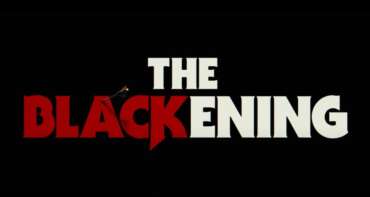“The Blackening” is an absolute gem that delivers on its promising tagline, “We can’t all die first.” Director Tim Story has created a masterful ode to horror parodies like “Scary Movie,” leaving audiences in stitches from start to finish. This film’s comedy, characters, and insightful commentary are not only hilarious for all viewers but also strike a chord with Black audiences. It taps into the familiar tradition within the Black community of shouting at and ridiculing horror movie characters for their questionable decisions, as well as the unfortunate expectation that Black characters won’t survive until the end. This very notion inspired the title of Jordan Peele’s highly anticipated film, “Nope,” as well as the enduring success of the “Scary Movie” franchise. However, “The Blackening” takes inspiration from its predecessors and forges its own unique path.
Based on the 2018 Comedy Central short film by the brilliant comedy trio 3Peat, with Dewayne Perkins as a member and co-writer, “The Blackening” follows a group of old college friends as they gather for a Juneteenth celebration at a remote cabin. After catching up and enjoying some spirited games of Spades, they suddenly find themselves at the mercy of a killer. Armed only with their street smarts and knowledge of Black culture, the ensuing chaos is a riotous celebration of their heritage.
At the heart of this thrilling cat-and-mouse game is the film’s titular board game, The Blackening. This game, with its unfortunate depiction of a racist character, requires everyone to play to survive. Answering questions like how many seasons the “Fresh Prince of Bel-Air” had with a dark-skinned Aunt Viv or naming five Black actors who guest-starred on “Friends” buys them a few more precious minutes of survival. But once the questions run out, the movie takes a thrilling turn into full-fledged slasher territory.
“The Blackening” wears its horror influences proudly, from a captivating “Scream”-inspired cold open to the presence of a televised game master reminiscent of the “Saw” franchise. The script, co-written by Perkins and Tracy Oliver of “Girl’s Trip” fame, is an absolute comedy goldmine. It is packed to the brim with punchlines and brilliantly executed physical comedy moments. While violence is played more for laughs than scares, there are still plenty of bloodshed, tense chase scenes, and exhilarating confrontations.
The cast of “The Blackening” is a true powerhouse, their chemistry radiating on screen and driving both the fear and comedy of the film. Every member of the ensemble shines, but it’s Dewayne, played by Dewayne Perkins, who consistently steals the show with his humor and heart. When he discovers that his best friend Lisa, portrayed by the talented Antoinette Robertson, is involved with her unfaithful ex-boyfriend Nnamdi, played by Sinqua Walls, Dewayne experiences a mix of anger, defensiveness, and genuine hurt. This triangle of emotions creates a captivating secondary plot that not only delivers empathetic moments about friendship and redemption but also generates uproarious laughter throughout. Robertson and Walls also share genuine romantic chemistry that adds depth to their characters’ relationship.
Even as “The Blackening” explores the complexities of relationships versus friendships, the rest of the ensemble refuses to be overshadowed. From the hilariously absurd Clifton, portrayed by Jermaine Fowler, who embraces his role as the group’s awkward, Trump-supporting “Carlton,” to the lively and no-nonsense Shanika, played by X Mayo, the film leaves no comedic stone unturned. Melvin Gregg shines as King, Nnamdi’s nonchalant ex-gangster best friend, while Grace Byers, as Allison, delivers laugh-out-loud physical comedy moments during an accidental Adderall trip. Allison, the only biracial friend in the group, becomes both the subject and emcee of the film’s jokes about the spectrum of Blackness.
While the script’s seamless hilarity may tempt viewers to overlook its underlying subtext, “The Blackening” masterfully explores the role of Black people in horror, media, and culture. Through character conversations and the overarching theme of The Blackening game, the film offers a sharp examination of how Blackness is often defined by a set rubric and the myriad ways one’s “Black card” can be revoked.
“The Blackening” cleverly lightens the weight of stripping away Blackness through humor, with Story keenly aware of this delicate balance. However, the movie also turns a critical eye towards the reality that within a world where white people frequently seek to define Blackness, intra-community judgment and jokes can be harmful to those who haven’t had the privilege of being fully immersed in their culture until later in life. While “The Blackening” may not possess the same profound depth as modern Black horror masterpieces like “Get Out,” it was never intended to do so.
Ultimately, “The Blackening” is an unapologetically Black comedy that delivers on all fronts. It maintains its sharp wit and biting humor until the very end, confidently serving audiences a hilarious film that we didn’t even realize we desperately needed. Tim Story and the entire cast have crafted a cinematic gem that celebrates Black culture, brings laughter to our hearts, and provides an unforgettable movie experience.

